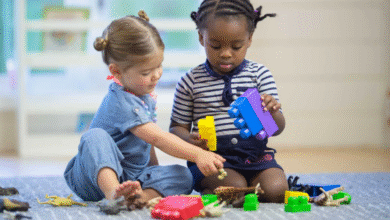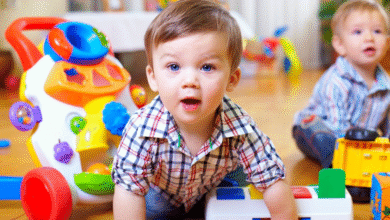Top Educational Toys to Boost Your Child’s Brain Development

In the journey of childhood, play is far more than just fun—it’s a fundamental tool that shapes a child’s brain and supports lifelong learning. Selecting the right educational toys can have a profound impact on your child’s cognitive, emotional, and physical growth. This article explores the top educational toys that boost your child’s brain development, helping you make informed choices to nurture your child’s potential.
Understanding Brain Development in Children
The early years of a child’s life are marked by rapid brain development. Understanding this growth is crucial for recognizing the role educational toys play.
The Critical Stages of Early Childhood Brain Growth
From birth to age five, a child’s brain forms neural connections faster than at any other time in life. This period, often called the “window of opportunity,” is when children are most receptive to learning new skills such as language, motor coordination, and problem-solving.
See also: bachaparty
How Play Influences Cognitive Development
Play stimulates brain activity, encouraging children to explore their environment, experiment with new ideas, and develop critical thinking skills. Educational toys designed to engage multiple senses can enhance memory, attention, and creativity.
Why Educational Toys Are Essential for Brain Development
Educational toys do more than entertain; they actively engage your child’s brain and support their learning journey.
Enhancing Cognitive Skills through Toys
Toys that challenge children to think, categorize, and solve problems help build neural pathways vital for reasoning and logic. For example, puzzles and building blocks promote spatial awareness and fine motor skills.
Social and Emotional Benefits of Educational Play
Interactive educational toys encourage cooperation, sharing, and communication, which are essential for emotional intelligence and social development.
Key Features to Look for in Educational Toys
Choosing the right educational toy requires knowing what features truly support brain development.
Age-Appropriateness and Safety
Toys should be designed with the child’s age and developmental stage in mind to ensure safety and effective learning.
Stimulating Creativity and Problem Solving
Look for toys that encourage open-ended play and innovation, such as building sets and art supplies.
Encouraging Motor Skills and Coordination
Toys that require manipulation and movement help children refine their hand-eye coordination and motor planning.
Top Educational Toys for Infants (0-12 months)
During infancy, sensory exploration is key to brain development.
Sensory Toys: Textures, Sounds, and Colors
Soft rattles, textured teething toys, and colorful mobiles stimulate a baby’s senses and promote neural growth.
Activity Gyms and Play Mats
These provide safe environments for babies to reach, grasp, and kick, strengthening muscles and sensory processing.
Best Educational Toys for Toddlers (1-3 years)
Toddlers are busy learners who benefit from toys that encourage exploration and early cognitive skills.
Building Blocks and Stacking Toys
Simple block sets help toddlers understand shapes, balance, and cause-effect relationships.
Shape Sorters and Puzzles
These toys develop problem-solving abilities and fine motor skills.
Interactive Learning Toys
Electronic toys that teach letters, numbers, and sounds offer engaging early literacy experiences.
Educational Toys for Preschoolers (3-5 years)
Preschoolers are ready for more complex toys that foster creativity and curiosity.
Science Kits and Exploration Sets
Simple experiments introduce basic scientific concepts and encourage inquiry.
Creative Art and Craft Toys
Materials like crayons, modeling clay, and craft kits boost imagination and fine motor control.
Language and Number Learning Toys
Flashcards, storybooks, and counting games build foundational skills for reading and math.
Educational Toys for School-Aged Children (6-8 years)
At this stage, children benefit from toys that challenge their growing cognitive abilities.
STEM Toys: Robotics and Coding Kits
These toys develop logical thinking, programming skills, and creativity.
Board Games for Strategic Thinking
Games that require planning and teamwork foster executive function and social skills.
Musical Instruments for Cognitive Growth
Learning an instrument enhances memory, coordination, and auditory processing.
How to Incorporate Educational Toys into Daily Play
Making educational play a regular part of your child’s routine maximizes brain development.
Setting up Learning Play Zones
Designating a space filled with accessible toys encourages frequent exploration.
Balancing Screen Time with Physical Play
Limiting screen time while promoting hands-on play ensures balanced brain stimulation.
Tips for Parents to Maximize Learning through Toys
Your involvement can significantly boost the benefits of educational toys.
Engaging with Your Child During Play
Asking questions and showing interest promotes language skills and curiosity.
Encouraging Independent Play and Exploration
Allowing your child to experiment independently fosters confidence and problem-solving.
Common Myths about Educational Toys Debunked
Clearing misconceptions helps parents make better choices.
Educational Toys Guarantee Success?
While helpful, toys alone don’t ensure success—it’s the quality of interaction and play that matters.
More Toys Mean Smarter Kids?
Quality over quantity is key; fewer, well-chosen toys foster deeper learning.
Where to Buy Safe and High-Quality Educational Toys
Knowing where to shop can ensure the best value and safety.
Trusted Brands and Certifications
Look for toys certified by safety standards and reputable brands specializing in educational products.
Online vs. In-Store Shopping
Both have pros and cons; online offers variety, while in-store allows hands-on evaluation.
Frequently Asked Questions (FAQs)
Q1: At what age should I start introducing educational toys?
A1: Educational toys can be introduced from infancy, focusing on sensory stimulation and gradually increasing complexity as your child grows.
Q2: How do educational toys improve brain development?
A2: They engage multiple senses, promote problem-solving, encourage creativity, and enhance motor skills, all essential for brain growth.
Q3: Are screen-based educational toys beneficial?
A3: When used in moderation and combined with physical play, screen-based toys can support learning but should not replace hands-on interaction.
Q4: How can I tell if an educational toy is safe?
A4: Check for age recommendations, non-toxic materials, and certifications such as ASTM or CE marks.
Q5: What is the best way to encourage my child to play with educational toys?
A5: Engage with your child during playtime, create a fun environment, and encourage exploration without pressure.
Q6: Can educational toys help children with special needs?
A6: Yes, many educational toys are designed to support various learning styles and can be beneficial with tailored guidance.
Conclusion: Investing in Your Child’s Future Through Smart Toy Choices
Educational toys are powerful tools that nurture your child’s brain development across critical stages of growth. By choosing age-appropriate, safe, and stimulating toys, you foster cognitive skills, creativity, and emotional intelligence that last a lifetime. Remember, the greatest benefit comes from combining the right toys with active parental involvement. Start investing in your child’s future today by selecting toys that educate, inspire, and empower.


